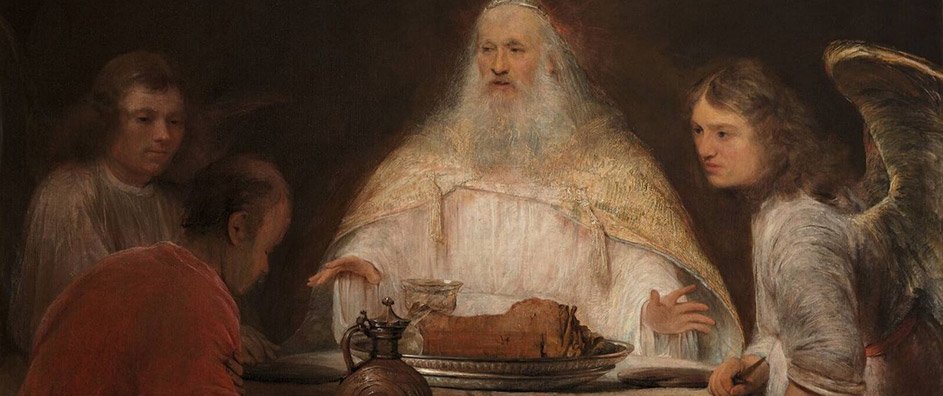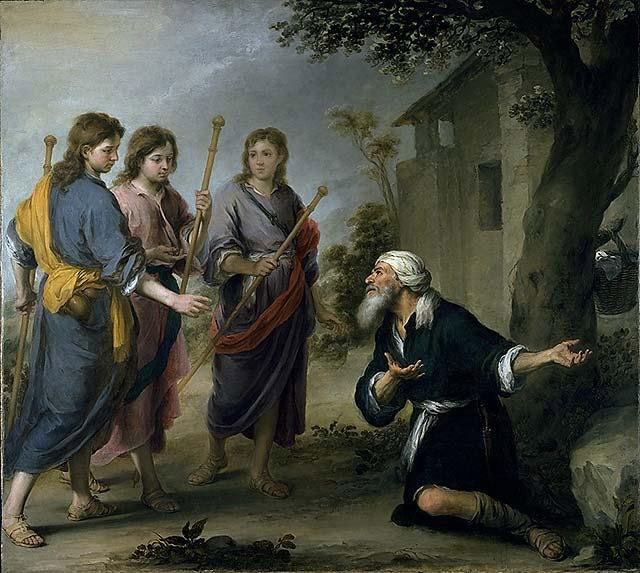The views expressed in our content reflect individual perspectives and do not represent the authoritative views of the Baha'i Faith.
Every morning I waken to find that I am made a target for the darts of their envy, and every night, when I lie down to rest, I discover that I have fallen a victim to the spears of their hate. – Baha’u’llah, Prayers and Meditations, p. 308
Depending on the source, Abraham is considered a patriarch, a Messenger of God, a Prophet, or just a nice and very wise man. This series of essays relies on the description of Abraham provided by the most recent of the five Abrahamic religions: the Baha’i Faith.
Baha’u’llah, like Muhammad before Him, refers to Abraham as a “Friend of God,” a term indicating that Abraham was a divinely inspired Manifestation. In Baha’i terminology, a Manifestation of God is a Messenger created by God to transmit religious teachings to mankind. These Messengers embody the attributes of God, but they are not God descended to earth. They provide, rather, a perfect reflection of the divine attributes, in the same way that a mirror can provide a perfect reflection of the sun without actually being the sun.
Manifestations of God are all inspired by the same Holy Spirit of God, and all of them receive divine knowledge about the past and future. In spite of what they have in common, however, the Revelation imparted by each one is a little different than that of any of the others. The reason behind this individuality is that each Messenger shapes the way in which he imparts spiritual teachings, mystical wisdom, and social laws to suit the needs and circumstances of the age in which he lives. Among the Manifestations of God identified in Baha’i scripture are Abraham, Krishna, Moses, Zoroaster, Buddha, Jesus, Muhammad, the Bab, and Baha’u’llah.
No one knows exactly how old Abraham was when he realized that he was destined to be a Messenger of God, but a fair guess is that it occurred during his battles with the flames of polytheism in Ur, perhaps while he was in prison awaiting the sentence of exile. If so, his experience would have been akin to that of Baha’u’llah who, in 1852, received his divine summons while confined in a filthy underground cell in Tehran, his neck laden with over a hundred pounds of chain:
During the days I lay in the prison of Tihrán, though the galling weight of the chains and the stench-filled air allowed Me but little sleep, still in those infrequent moments of slumber I felt as if something flowed from the crown of My head over My breast, even as a mighty torrent that precipitateth itself upon the earth from the summit of a lofty mountain. Every limb of My body would, as a result, be set afire. – Epistle to the Son of the Wolf, p. 22.
The transforming experience, the moment in which the responsibility of being a divine herald was revealed to Abraham, is described in the Qur’an. In that verse, Muhammad explains that Abraham was allowed to see beyond the physical limits of space and time so that he would have the information He needed to accomplish His mission: “Thus did We show Abraham the kingdom of the heavens and the earth that he might be of those possessing certainty.” – Qur’an 6:75.
Was Abraham elated, terrified, saddened by what He learned? And how did he describe His encounter to others? Jewish tradition suggests that Abraham compared hearing the Word of God to eating nourishing food, and that the first person to hear the analogy was the warden of the prison. It seems that while Abraham was in prison he was fed very little if any food, in the hope that he would starve to death. When an order finally came to release Abraham from his cell, a warden approached warily and called out “Abraham, art thou alive?”
Abraham answered, “I am living.”
The warden, astonished, then asked, “Who has been bringing thee food and drink all these many days?”
Abraham replied:
Food and drink have been bestowed upon me by Him who is over all things, the God of all gods and the Lord of all lords, who alone doeth wonders, He who is the God of Nimrod and the God of Terah and the God of the whole world. He dispenseth food and drink unto all beings. He sees, but He cannot be seen, He is in the heavens above, and He is present in all places, for He Himself superviseth all things and provideth for all. – from Ginzburg, the Legends of the Jews, p. 199.

















Comments
Sign in or create an account
Continue with Googleor